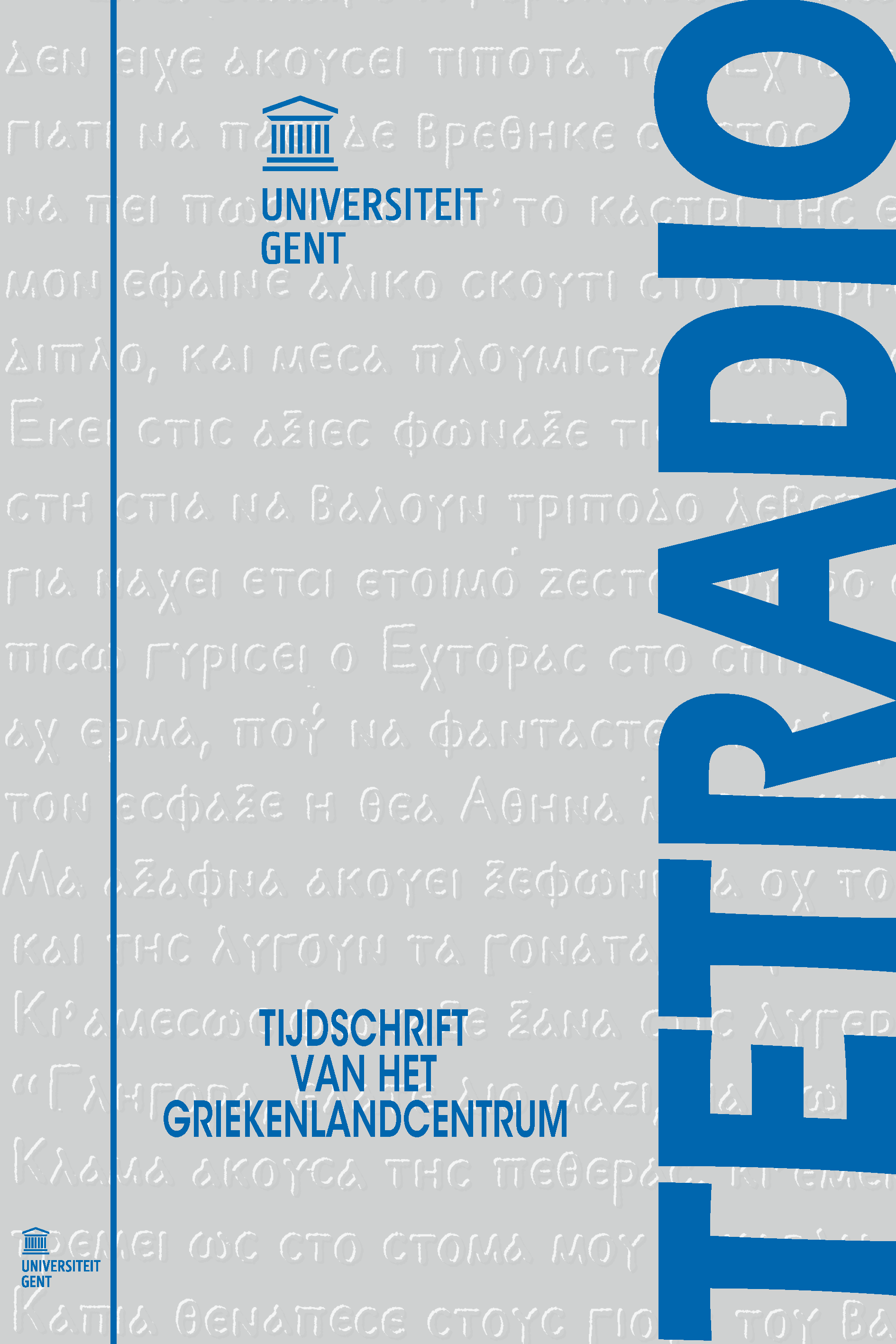Alexandrië, van Alexander tot Kavafis: van plaats tot topos
Abstract
Alexandria was founded as a Greek ‘island’ in Egypt, with an immigrated population that remained very much attached to its Greek identity. The Library of the Mouseion became a museum of the Greek literary tradition, which was selected and studied by scholars who stood themselves outside the classical polis tradition.Their ‘modern’ attitude led to a different kind of literature, which privileged the experience of the individual in the big city over the commitment to the community, which characterised the polis tradition. The Arab conquest put an end to Alexandria as an intellectual centre. Over the centuries, the harbour’s economic significance declined. After Napoleon’s Egyptian expedition, the country’s rapid economic development under its khedive Mehmet Ali attracted to the city a colony of ‘Franks’ and Greeks, which grew ever more important in the second half of the nineteenth century. Just like their ancient predecessors, these Greeks lived quite separately from the local population. One of them, Cavafy, created in his poetry an Alexandrian mythology, in which his sensuality, unlike in his own day, enjoyed a high standing, and Greek was the universal language of civilisation, defined as both a way of life in which pleasure played an important part, and a commitment to art and science.
How to Cite:
De Boel, G., (2018) “Alexandrië, van Alexander tot Kavafis: van plaats tot topos”, Tetradio 27(1): 3, 57–86. doi: https://doi.org/10.21825/tetradio.91873
Downloads:
Download PDF
View PDF

